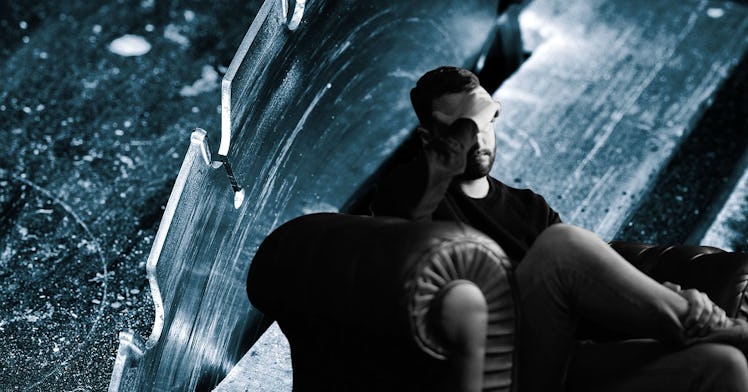Why Your Hangovers Get Worse With Age, According To Science
There's a very specific reason most parents can't drink like they used to.

Hangovers get more intense with age, and scientists confirm that the nausea, fatigue, and irritability associated with drinking too much are not all in your aching head. It happens because your metabolism is slowing down, so it takes your body longer to eliminate alcohol from your blood. “As we age, alcohol is not metabolized well,” Cedrina Calder, a Baltimore-based physician, told Fatherly. “This leads to higher blood alcohol levels than normal, and a higher likelihood of experiencing a hangover.”
Approximately three-quarters of people who drink alcohol to the point of intoxication experience hangovers, which are characterized by a variety of symptoms related to heavy drinking, including fatigue, headaches, increased sensitivity to light and sound, muscle aches, increased thirst, dizziness, and cognitive and mood disturbances like depression, anxiety, and irritability. Despite how common they are, scientists know very little about what makes hangovers such fresh hell for so many parents.
What they do know is that genetics, hormones, glucose levels, dehydration, nutrition, and psychosocial factors like guilt about drinking and neuroticism, and — crucially— metabolism all play a role in determining the severity of a hangover. As we age, our bodies are less able to metabolize alcohol as efficiently, partially due to decreased liver enzyme activity and fewer liver cells.
“With fewer cells available, less alcohol can be metabolized for elimination leading to higher blood alcohol levels,” Calder explains. “The activity levels of these enzymes decreases with advancing age. This leads to a decrease in the metabolism of alcohol and higher blood alcohol levels.”
For aging parents who still want to have a few drinks without feeling it the next day, options are limited. You can’t fix an aging liver. Calder recommends tackling one of the other factors that contribute to hangovers, by drinking plenty of water before and during alcohol consumption, in order to reduce dehydration. Hangover-prone individuals may want to avoid dark liquors as well because they contain chemicals that further inhibit the ability to metabolize alcohol. Still, the best thing parents can do is simply drink less. Sure, that might not seem like the most fun, but neither does being nauseous, aching, moody, and oversensitive to light while trying to care for a toddler. “Hangovers get worse with age due to a few different factors,” Calder says. “To combat this, you should decrease your intake of alcohol.”
Brutally sober — but sage — advice.